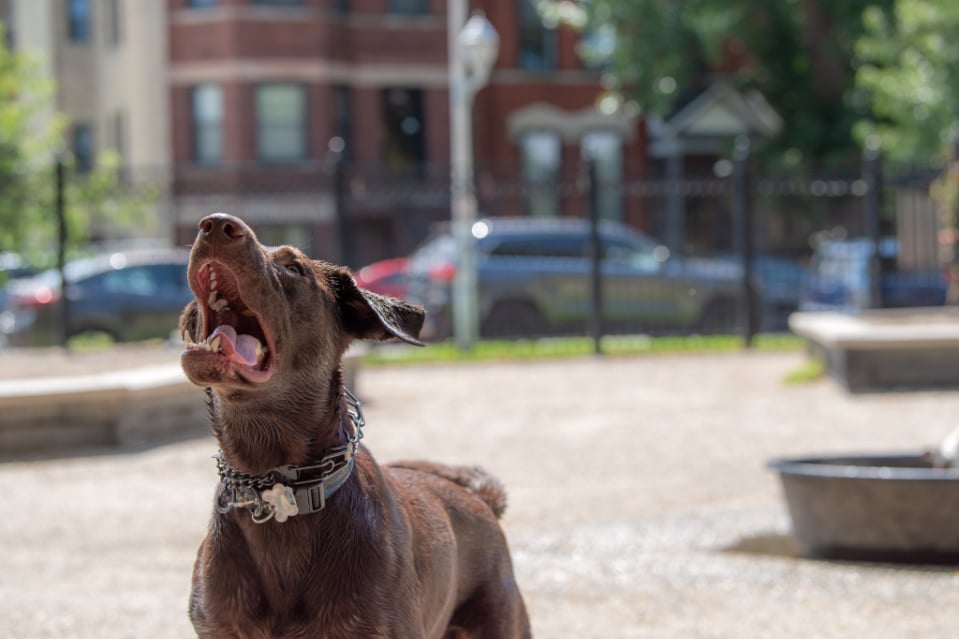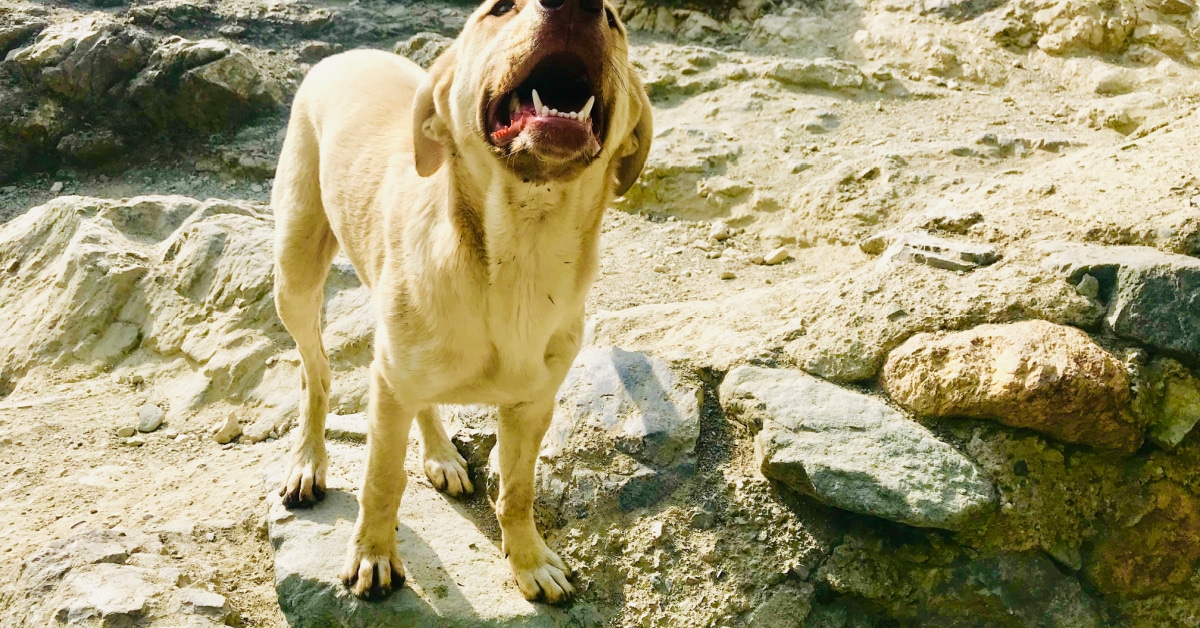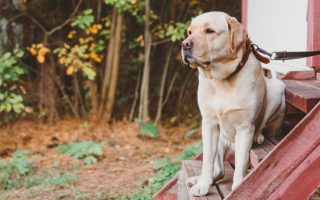At what age do Labradors start barking?
If you have a young Labrador Retriever puppy that you worry about because they haven’t started barking, here’s everything you need to know.
When do Labradors start barking?
Labrador puppies will start to vocalize as young as 2-3 weeks old. That is around the time they will start to use their vocal cords.
You may hear your puppy start to whine and grunt when they open their ears and eyes.
These small whines and grunts will slowly develop into small barks and yips when they are 7-8 weeks old.
However, it is very normal if your Labrador does not start to bark or yip until they are 16 weeks old. Just be a bit patient with them.
It will also depend on your Lab’s unique personality. Most Labs are relatively quiet dogs, so they may not bark often.
So, if they are 16 weeks old and do not bark, it does not always mean that they do not know how to bark. They may simply not want to bark yet.
However, each Lab is different. You may have a slightly more vocal Labrador that enjoys barking every time you come home.
Are Labradors noisy dogs?
By nature, Labradors are not noisy dogs. They are specifically bred not to be noisy dogs.
Professional breeders choose the parents carefully to make sure the puppies do not get the “noisy” gene.
If your Labrador is noisy, it could be because they were bred by backyard breeders.
These breeders are not certified, and they only breed Labs to make money, not because they care about the dog breed.
Therefore, they will not care about what genes the litter will get.
However, Labradors may still start to bark for the following reasons:
1) Communication

Dogs cannot speak, so they often use body language to express themselves.
However, barking is another way to communicate. Most dogs will learn that they do not need to bark as much when they are older, but puppies may bark more frequently to try to talk to you.
For instance, your Lab puppy may start barking when you hold up their ball or leash because they feel excited.
They may also bark at you at any age if they need to go to the bathroom and want you to open the door.
2) Trauma and fear
Some dogs may feel traumatized by certain things, and they might bark as a defense mechanism.
For example, your Labrador might start barking when they hear a loud noise and were traumatized by loud noises when they were puppies.
It is also very common for any dog to bark when they are scared.
If an intruder enters your home in the middle of the night, they will bark out of fear and let you know that there is a stranger in the house.
3) Uncertainty
Similar to feeling scared, a dog may bark when they are uncertain. They may not be sure what else they can do, so they may bark instead.
For example, if they meet a new dog and are still new to socialization, they may bark at the other dog because they feel unsure.
4) They want attention.
Labradors love to be around the people that they love. If they feel bored and lonely, they may start barking to grab your attention.
They will do so more if they notice you give them attention when they bark.
5) They learned it from other dogs.
Other dogs can be noisier than Labradors. For instance, Chihuahuas are naturally noisier than Labradors.
However, another dog’s behavior can rub off on your Lab.
For example, if you own a Chihuahua and a Labrador, your Labrador may not be noisy as puppies.
However, they may get the habit of barking when they spend enough time with the Chihuahua because they often mimic other dog’s behaviors.
How to teach your Labrador Retriever to start barking
If you want to teach your dog how to bark on command and when to stop, you can try the bark-and-no-bark training.
First, you have to use a cue to let your dog know when they should and should not bark.
You should also use the cue regularly so they will eventually learn when to bark when you are not around.
For instance, you can say “speak” or “bark” when a stranger enters your home.
When your Labradors start barking for no particular reason, you can say “quiet” or “no” to let them know how to stop.
Of course, it will take some time for your Lab to get used to the commands.
Remember to reward them each time they follow the command properly. That way, they will be able to do it without hesitating.
All in all
Labradors are not naturally noisy dogs, but you may hear them start to grunt and whine when they are 2-3 weeks old. They usually start barking when they are 1-3 months old.







